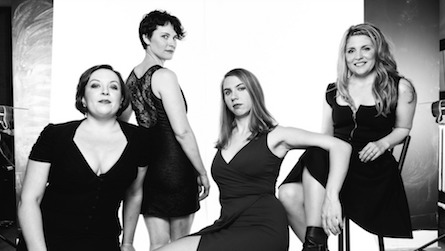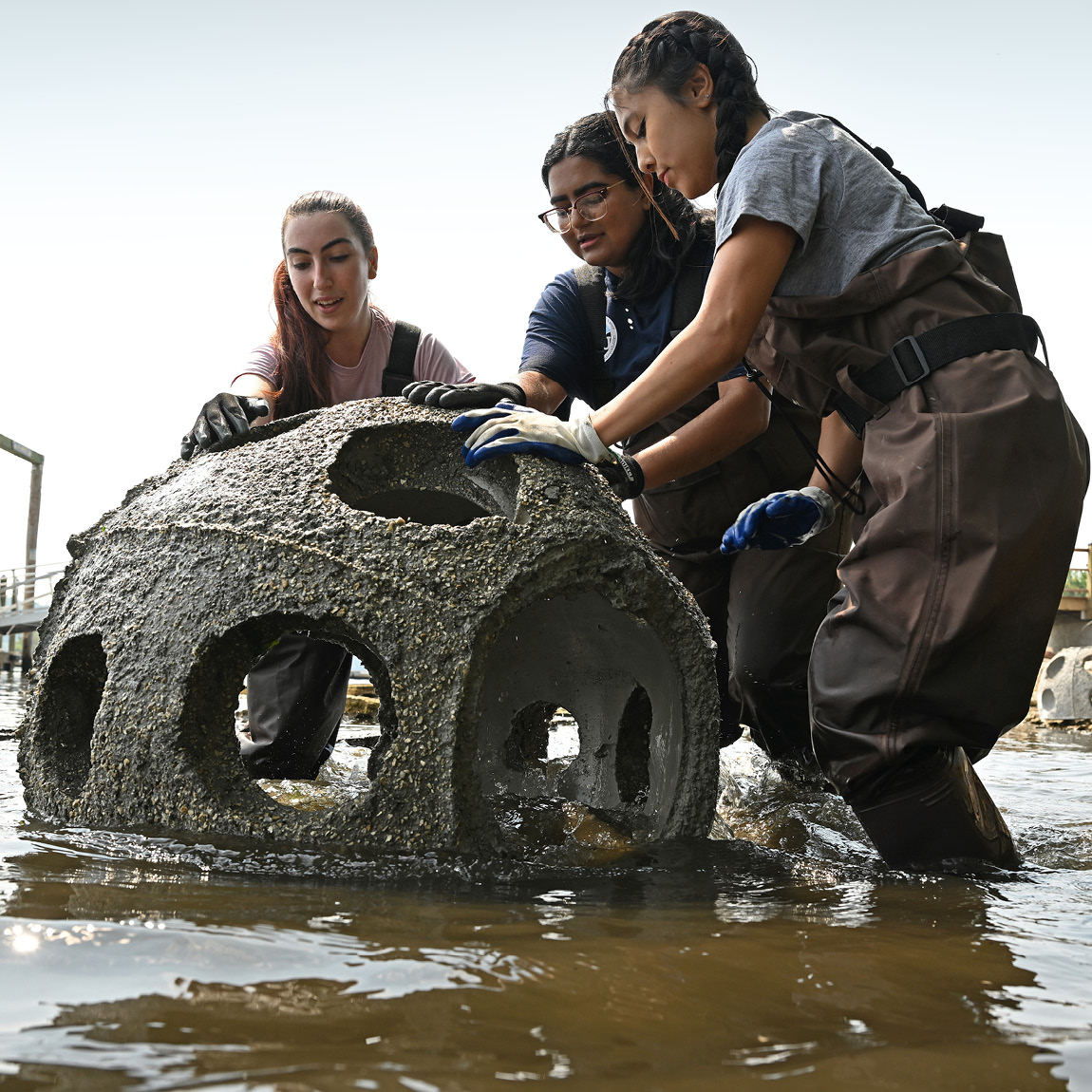
Quince starts Ammerman Center's “The Body and Technology” Colloquia Series

The Ammerman Center for Arts and Technology's "The Body and Technology" Colloquium Series 2016-2017 begins with two free events open to the public: a Nov. 14 talk by Quince Contemporary Vocal Ensemble and their concert performance the following evening, Nov. 15.
Quince Contemporary Vocal Ensemble is an all-female vocal quartet, an artist-run ensemble committed to commissioning, creating, performing, and educating about new and experimental vocal repertoire. With the precision and flexibility of modern chamber musicians, Quince Contemporary Vocal Ensemble specializes in experimental repertoire that is changing the paradigm of contemporary vocal music. Learn more at www.quince-ensemble.com.
In their talk, “Entrepreneurship in Contemporary Music,” taking place in Olin Science Center, 014, at 4:30 p.m. on Monday, Nov. 14, Quince will be discussing their own experiences in the American contemporary music scene: from working with composers to designing a website to navigating the world of nonprofits to creating new, musical opportunities in order to ensure a sustainable and thriving career in this ever-changing music world.
The concert, “Machine Music”, by Quince Contemporary Vocal Ensemble on Tuesday, Nov. 15, at 7:30 p.m. in Evans Hall, Cummings Arts Center, includes an appearance by Camel Heard, the College's choral ensemble. A reception will follow. Camel Heard is an advanced mixed vocal ensemble of approximately 12-16 members open to majors and non-majors by audition. This ensemble performs a diverse repertoire from the medieval period to the 21st century.
Wendy Moy, assistant professor of music, director of choral activities, and co-associate director of events for the Ammerman Center, said of the concert, “I am very excited about this residency with Quince Vocal Ensemble as it offers our students a glimpse into the professional world of singing within a choral context. Quince will be performing music that re-conceptualizes how we use the voice in an ensemble setting through the use of extended techniques, electronics, and voice manipulation apps. Our students will learn how to bridge the gap between their “classical” training and the techniques required to perform cutting-edge experimental music. In addition, they will learn valuable lessons about the collaboration, skills, and creativity needed to be an entrepreneur in the arts. From this residency with Quince, it is my hope that our students will envision what a creative life in the arts can look like now and beyond graduation.”
These two events are sponsored by the Ammerman Center for Arts and Technology and the Music Department.
The 2016–2017 Ammerman Center Body and Technology Colloquia series presents a wide-range of thought provoking work by artists, researchers and performers, manifesting and reflecting on the current multiplicity of relationships between technology and the body, and the ways these can shape, enhance or control our lives.
The Body and Technology Colloquia series will also address post-human bodies shaped by the Mexican-American borderlands and the politics of otherness (Guillermo Gomez-Pena with La Pocha Nostra, February 27-28, 2017), to clone-bodies generated and shaped by science fiction and algorithmic excess (Lee Blalock, April 3, 2017).
Visit the Body and Technology Colloquia website.
The Ammerman Center for Arts and Technology gathers faculty and students who study and contribute to the symbiotic relationship between technology and the arts. Through interdisciplinary collaborations and individual work, students and faculty not only promote proficiency in working with technology, but also deepen the understanding of the meaning and role of technology within the larger context of the liberal arts.
For more information, contact Libby Friedman, assistant director of the Ammerman Center, elizabeth.friedman@conncoll.edu.
November 1, 2016
